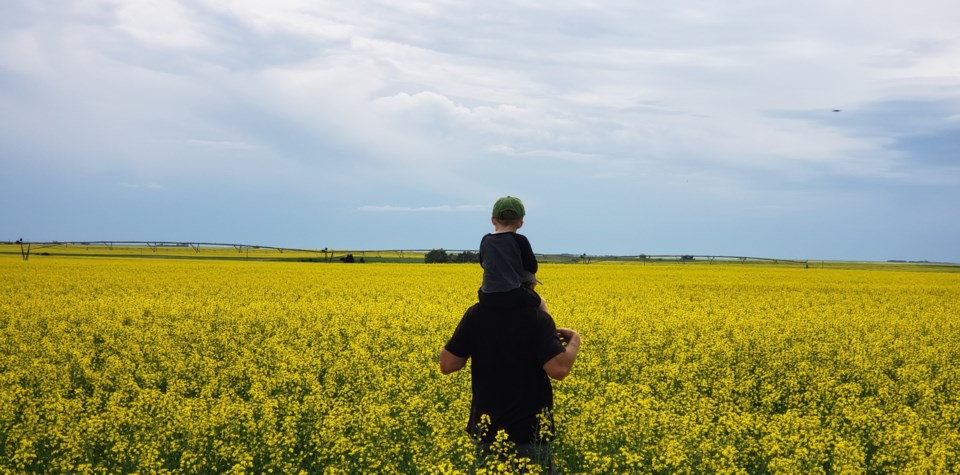YORKTON - When it comes to our health there are all kinds of suggestions of how to go about being healthier.
It ranges from fitness centres to those on diets that avoid flour or meat or rely only on foods available hundreds of years ago, to those pointing to the healing qualities of certain herbs and crystals. Figure out the one that works and you should be physically better off.
But what about our minds?
While it is widely promoted to be healthier physically, and many are at least keeping an eye on that element of their lives, it still seems less attention is paid to mental health.
It’s not that there are not services to help when we feel that our mind is overwhelmed and the decisions we might be making are detrimental, but seeking that help is still difficult for many.
We are all right telling a medical professional we have headaches or a sore back, but often far more reluctant to talk about our thoughts.
So what has this all have to do with a column on agriculture?
Well the topic of mental health was delved into as Sheldon Kennedy was the speaker recently at the Grain Expo Conference at Canadian Western Agribition.
Kennedy, an advocate for abuse survivors was invited by Agribition CEO and long-time friend from Swift Current Shaun Kindopp to speak on the challenges and impacts of mental health and addictions issues.
Kennedy said the farm sector is far from immune from mental health issues. In fact, the stats are scary suggesting “one-in-four farmers contemplated suicide in the last year.”
But, Kennedy said if you consider the pressures they face, it is understandable they face a lot of stress.
With the investment that goes into planting a crop, worries about whether it will rain and if it does whether it might be too much, and of course the season end prices for what is harvested, are all stressful.
While farmers can’t avoid the stresses of the career they have chosen the key is to understand “ways to manage it,” said Kennedy. “It’s managing the stresses.”
Kennedy’s message is not new, but needs to retold to reinforce the importance of mental health of the farm.
In fact, back in 2017, Kim Keller, a farmer and co-founder of Saskatchewan Women in Agriculture said a University of Guelph study shows the level of stress being faced.
Keller told those who were attending a panel discussion the Farm Fitness and Finance Forum at the Grain Millers Harvest Showdown in Yorkton that fall that a study showed 35 per cent of farm respondents faced depression, 42 per cent said they faced high stress on a daily basis and 58 per cent anxiety.
But perhaps the most concerning data was that 40 per cent also said they wouldn’t seek help, she said.
Keller said that resistance to find help has dire implications.
“In the (United) States farmers are twice as likely to commit suicide than the general public,” she said. Mike Neilson a rancher near Willowbrook told the conference he went through life threatening cancer and that created stress and impacted his mental health. He said it can come down to “a decision to be mentally well, to feel good about yourself … One main thing I had to learn … was to put myself first.”
Neilson said finding a balance when things are wearing on your mind is difficult, especially on a livestock farm.
“The cattle industry is a unique industry in that you really can’t take a break from your animals,” he said. “There’s no days off so to speak.”
It was a theme Kennedy picked up on in a recent interview with this reporter where he noted there is the isolation as farmers operate on their farm away from co-workers who might sense something being wrong.
It can be easy to start to over think problems when driving the tractor around and around a field cultivating.
“The longer we struggle in our heads the more steam it (the problem) picks up,” said Kennedy.
And, on the farm you live the business.
“You drive down that lane you see the work that needs to be done,” said Kennedy.
Kennedy has been talking about mental health issues for some 30 years, and says things have gotten better, but one senses there is far more progress which needs to be made.






